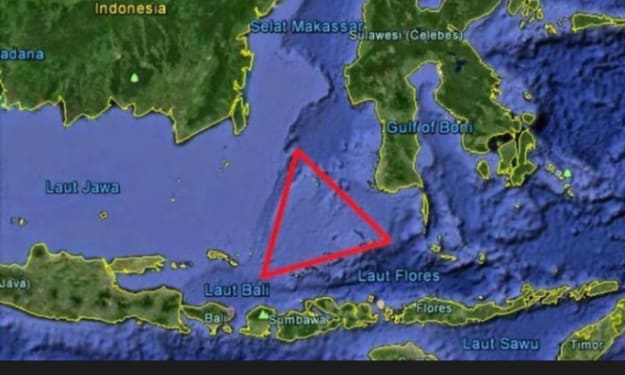It takes a slap to change the future - "Emperor of football" Beckenbauer
Breaking the rules, he became the first professional player to appear regularly in commercials, and he recorded some songs, although they weren't very good

What if Frank Lampard had not been wronged on the goal-line, Ronaldo had not fallen ill on the eve of the 1998 World Cup, or Posh Spice Victoria had not married Beckham?
If any of these "ifs" had happened, the whole course of football history might have been very different. In fact, England were knocked out by Germany in the quarter-finals of the 2010 World Cup, France won the 1998 World Cup and Beckham married Victoria.
When Gerd Mueller, the legendary German striker, passed away, I read a lot of articles around the world in memory of him, and they always looked back on Muller's amazing goalscoring abilities and statistics without talking about someone else. This man, at the age of 13, made a decision that would change him and the future of football forever. He was Franz Beckenbauer.
At the time, Beckenbauer was playing for Munich SC's youth team, a natural choice as it was closest to home and his brother played there. However, Munich SC were in poor condition at the time and had replaced the turf on their football pitch with cheaper clay, so rumours were rife that they were ready to close their academy. Beckenbauer and his teammates decided to join 1860 Munich, the club he grew up supporting, at the end of the season. Bayern, in his own words, are a bit too "noble".
Before leaving, however, Beckenbauer and his teammates decided to play one last Cup. They then knocked Bayern Munich out in the semi-finals and met 1860 Munich in the final. But in the final, Beckenbauer got into an argument with a central defender of 1860 Munich, who then slapped him. Beckenbauer was furious, not because they had lost 1-4, but because of the taunts. He decided at that moment that he would never play for 1860 Munich. Instead, he joined Bayern Munich, and it was his decision that led to Bayern's domination of European football a few years later.
Beckenbauer was 18 when he made his debut for Bayern, who were still playing in the Bundesliga. Beckenbauer played on the left wing, a position that reflected his attacking ability and the potential for him to become a good passer.
Beckenbauer soon found success on the German domestic stage. In his first season at Bayern, he teamed up with fellow striker Gerd Mueller, who scored 33 goals that season, and Beckenbauer, who scored 17, to help Bayern win promotion to the Bundesliga. Together with goalkeeper Sepp Mayel, these three players of similar age and talent became the backbone of Bayern and the West German team for years to come.
Beckenbauer's ability was quickly recognized by the national team. Just a few months after switching to midfield and making his Bundesliga debut for Bayern, Beckenbauer was called up by West Germany and immediately gained the confidence of coach Helmut Schon: 50,000 supporters turned up in Stockholm for a game against Sweden that would have eliminated West Germany from the World Cup finals. Beckenbauer started and gave his side a 2-1 comeback win. West Germany eventually reached the 1966 World Cup final in England.
Schoen knew then that Beckenbauer was going to be a legend, and it wasn't long before the rest of Germany did too.
It was only 10 months after Franz Beckenbauer made his international debut when West Germany reached the World Cup finals, but the 20-year-old's life had already changed dramatically. Although Bayern did not win the Bundesliga title, they finished third, level on points with Borussia Dortmund and only three points behind 1,860 Munich. Instead, they won the German Cup, Bayern's first major trophy in eight years. Beckenbauer scored in the final and was voted German Player of the year.
Beckenbauer scored twice on his World Cup debut as West Germany thrashed Switzerland 5-0. The Mirror said of him at the time: "Beckenbauer, the fantastic Franz, tall, dark, handsome and he's only 20 years old: he must be the superstar of this World Cup." What they say is not wrong. His goal in the semi-final was the best of the four, when he deflected a defender and fired a left-footed volley into the net from outside the area that even the best goalkeeper in the world, Yashin, could do nothing about.
In the final, however, Beckenbauer was forced to put his attacking talents to one side when coach Steve Schoen decided to play the 20-year-old, who won only his 14th cap, against England's most dangerous weapon up front in Bobby Charlton. In fact, both men managed to limit each other, but Beckenbauer later said: "England beat us in 1966 because Bobby Charlton was a bit better than me."
The German press could not forgive Schon, accusing him of wasting the strength of their best players by not playing Beckenbauer in the position he excelled at, but Beckenbauer always regarded the manager as a father figure and would never criticise him. He thought he could do better.
Bayern, with a host of World Cup runners-up including Franz Beckenbauer, went from strength to strength. They won the German Cup in 1967 and went on to beat Glasgow Rangers in the European Cup Winners' Cup final to lift the trophy. But they still failed to be crowned Bundesliga champions. Beckenbauer became captain of Bayern as they tried to bring them their first Bundesliga title, earning him the nickname "Julius Caesar" during the 1968-69 season. Although there are various accounts of who first gave him his most famous nickname, "Emperor," his nickname has remained the same since, because it suited him so well. He is incomparable.
Beckenbauer quickly became a superstar in German football. Breaking the rules, he became the first professional player to appear regularly in commercials, and he recorded some songs, although they weren't very good. It is a far cry from the 18-year-old who was banned from Germany's youth team for getting his girlfriend pregnant and refusing to marry her.
On the pitch, Beckenbauer also broke new ground. Since that dismal 1966 World Cup final, Beckenbauer has transformed from an all-purpose midfielder into a ball-holding defender, combining the "free agent" that was prevalent in the great Italian teams of the time with his own combination of skills.
Schoen believes Beckenbauer is an extremely effective defender because of his speed and toughness, but it is his attacking talent that sets him apart from other defenders. Beckenbauer became an attacking centre-back, holding the ball at the back when necessary, but also running confidently forward and setting up attacks at will.
Back then, playing alongside Beckenbauer for club and country was Gerd Mueller, whose goal-machine attributes combined with Beckenbauer's unmatched passing ability to make them unstoppable. There is no doubt that the 1970 World Cup was the crowning glory of Germany's golden generation. But the challenges are huge. That year, Germany's domestic league was disrupted by extremely cold weather and icy pitches, while the World Cup was played in extremely hot Mexico.
West Germany also face a tricky World Cup opponent as they face defending champions England in the quarter-finals. Beckenbauer scored from 25 yards to help West Germany recover a point from 2-0 down, while Muller scored the extra-time winner to eliminate England. In the semifinals, however, it was Italy who scored the winner in extra time to knock West Germany out 4-3. Beckenbauer also suffered an injury in that game.
But Beckenbauer's path to success was not hindered. The 1970 World Cup exit did not kill the nascent talent, but set off fireworks for him. The next decade would be dominated by Beckenbauer's Bayern and West Germany teams.
Many say 1972 was the best year for the West German team, when they won the European Championship against the Soviet Union in the final. It was the same for Bayern, who clinched the Bundesliga title, the first of their three in a row.
Soon, they were making a run at the Champions League title. Johan Cruyff's Ajax were the dominant team in Europe, beating Bayern in the quarter-finals of the Champions League in 1973 and winning the competition for a third consecutive year. However, the defeat was not without benefit for Bayern. Sepp Mayeur was so annoyed he threw his shirt into the river after the 4-0 defeat at Ajax in the first leg. The 2-1 win in the second leg was not enough to qualify, but Bayern began to believe that Ajax were not invincible and that domination of European football was not out of reach.
In 1974, Bayern continued to compete in Europe, and this time, they reached the Champions League final, but not against the holders Ajax, but against Atletico Madrid. In fact, they played Atletico twice, and since there were no penalty shootouts in the Champions League at the time, the first time the two teams went into extra time they were still tied, so there was a replay. Then Bayern finally won the Champions League after the replay.
Just weeks later, Beckenbauer was leading West Germany at the World Cup on German soil. Beckenbauer was not discouraged after several heartbreaking extra-time matches at the World Cup. Dutch "total football" is the biggest challenge. The final was seen as a showdown between Beckenbauer and Cruyff.
There are too many similarities between these two men, both of whom have led two big clubs in unique, game-changing philosophical ways. In fact, the "free man" approach that Beckenbauer had perfected at the time was not so different from the Dutch "total football", and the West Germans were not afraid to copy their opponents.
The Dutch were favourites to win the tournament, conceding just one goal on their way to the final. And in the final, the Netherlands took a 1-0 lead with a Cruyff penalty before West Germany had even touched the ball.
After playing behind for 20 minutes, Beckenbauer finally got into the game and the Dutch had to drop back as Beckenbauer's long ball easily found space behind them. West Germany then equalised before Gerd Mueller put them ahead two minutes before halftime. West Germany held that score until the end, and Beckenbauer became national captain, European champion and world champion. Although Muller scored the goal, Beckenbauer was the king.
Before he was 30, Beckenbauer had won all the major trophies the game had to offer. He also received many personal honors, including Golden Globes in 1972 and 1976. However, it was his global success with the national team that really made him famous.
When he won the World Cup with France in 2018, Deschamps became only the third man to win the World Cup as a player and manager after Beckenbauer and Zagallo. Beckenbauer had achieved this feat 30 years earlier. But like his playing career, Beckenbauer had his share of heartbreaking moments early in his managerial career.
Back in Mexico 16 years after Italy beat West Germany 4-3 in the 1970 World Cup semi-final, Franz Beckenbauer's West Germany lost 2-3 to Diego Maradona's Argentina. Four years later, the two teams met again in the final, but Maradona was not as brave as he once was, and Argentina managed only one shot on goal in the entire game. West Germany finally got their revenge this time, beating Argentina 1-0 to lift the World Cup again.
After leading the national team back to the top, Beckenbauer had a brief spell in charge of Marseille. He then returned to Bayern as manager. But it was during his time as club president that he made his biggest impact at Bayern.
After building Bayern into one of the strongest teams as a player, Beckenbauer continued to do the same at the top of the club. During his 15 years in charge, Bayern won eight Bundesliga titles and the Champions League (the last one was as a player under Franz Beckenbauer).
Bayern, you could say, had three Beckenbauer teams: the one he played for as a player, the one he coached as head coach of West Germany and the one he built as a manager. He even presided over Germany's bid for the 2006 World Cup, which was also successful.
It is difficult to sum up any player in one word, but with Beckenbauer there is one word that clearly sums him up well and that is "winner"
About the Creator
Yan Guo Luan
I like movies, music, science fiction and art. I am a certified graphic designer and create my own art. Things that inspire me include equality, respect and anything weird.






Comments
There are no comments for this story
Be the first to respond and start the conversation.